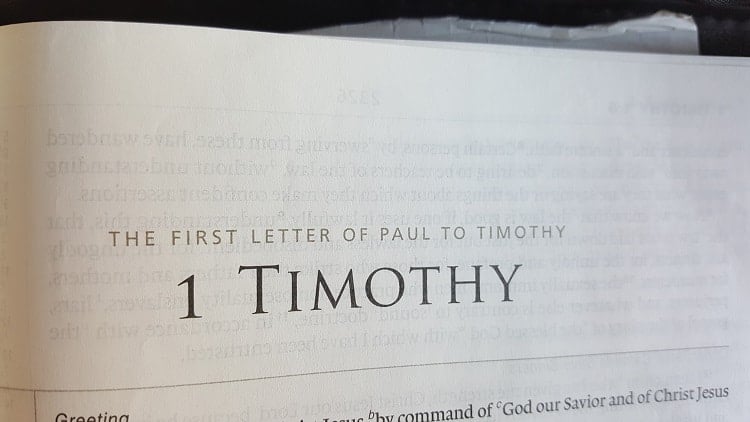⏱️ Estimated Reading Time: 8 min read
As I write this, fans of two major sports are watching their favorite teams battle it out for the championships. There are four teams left in each league, and from this round of games, two hockey teams will advance to the Stanley Cup finals and two basketball teams will square off in the men’s NBA playoffs.
The competition has been intense. Injuries wreak havoc on line-ups. Morning–after analyses and video replays fill our social media feeds as series domination swings back and forth with every game. Whether their team is ahead or behind, fans sit glued to their screens, watching seconds tick away in a period or a half, waiting for the breather when they can raid the refrigerator and their team files away to the locker room for The Talk.
We all know what’s in The Talk. “Why are we here?” “Are we all on the same team or not?” “This is what you need to do.” “This is what I want to see.” “Remember how we drilled this in practice?”
Even if we haven’t heard it in a locker room, some likeness of the speech is given in business meetings, at dance and theater rehearsals, even around dining room tables. No doubt that is why Paul went with such a familiar scenario to illustrate training in godliness in his letter to Timothy.
“If you put these things before the brothers, you will be a good servant of Christ Jesus, being trained in the words of the faith and of the good doctrine that you have followed. Have nothing to do with irreverent, silly myths. Rather train yourself for godliness; for while bodily training is of some value, godliness is of value in every way, as it holds promise for the present life and also for the life to come. The saying is trustworthy and deserving of full acceptance. For to this end we toil and strive, because we have our hope set on the living God, who is the Savior of all people, especially of those who believe.” (1 Timothy 4:6-10 ESV)
“Why are we here? Whose team are we on? What do we need to do? How do we make it happen?”
As readers of this letter, we are privy to The Talk. Timothy, Paul says, your service to Christ is tied to your faithful exhortation of the doctrines of Christ to the brothers, which is believed to refer to brothers and sisters without distinction. The message doesn’t discriminate; it extends to all the New Testament church, whether poor or rich, citizen or slave, outcast or notable member of society. The whole of 1 Timothy is divine truth and pertinent to all believers, but we can look at these verses as a mid-letter intermission, a moment to reflect on what’s gone before and to consider the work to be done, framed within a relatable context for the hearers.
All of us who are in Christ benefit from The Talk. But how? What is this strategy that Paul shares with Timothy?
First, the Apostle urges the young pastor to stand firm and stick to the message of faith, declaring the wisdom of the cross, “the good doctrine,” and to lead his Ephesian church through the same training he has received (2 Timothy 1:5). Other versions say, “put the brethren in the mind of” or “in remembrance of these things”—essentially, Paul says, teach them what it is to have a mind full of Christ and His glory (Philippians 2:5; 1 Peter 1:13).
Conversely, avoid speculations and distractions that drive a wedge between you and God, Paul warns. Being of one mind with Christ puts Christians at enmity with the world. Our goals, our training, and our routines should be counter-intuitive. Where the world pursues glory for self, those in the training-for-godliness program will gladly partake of suffering in order to multiply the glory of Christ. There will always be appealing, new and innovative methods on the market. They promise easier and faster access to our goals. But those who have exercised their minds with good doctrine will know not to be persuaded. Paul commands Timothy, “Have nothing to do with irreverent, silly myths.” Distinguish yourself from false teachers and distance yourself from those who treat the words of faith carelessly or in a profane manner.
Be known instead as disciples of the ways of God, exhorts Paul. Pray for all, the brothers and those outside the faith. Demonstrate the fortitude and endurance that comes from feeding on God’s word with delight, ever looking forward to the next meal. Meditate on the doctrines, study them, digest them—not to attain some level of nirvana here in this life, like a temporary runner’s high, but to have the soul exercised and the heart strengthened by grace (Hebrews 13:9).
John Gill, who pastored the same church as Charles Spurgeon one hundred years earlier, said the words of faith “are of a nourishing nature; they are the wholesome and salutary words of Christ; they have in them milk for babes, and meat for strong men: by which both grow and thrive.”[i] This nourishment flows from Christ, our head. He strengthens and trains the body in all its functions and gifts, feeding it with knowledge and understanding (Colossians 2:19; Ephesians 4:15-16), solid food to bring the body to maturity so that it can know God’s will (Romans 12:2), endure suffering (2 Corinthians 12:9-10), and exercise discernment (Hebrews 5:14).
Such training is not only profitable (Titus 3:8), it is perfect because it is dispensed by His divine power, granting “to us all things that pertain to life and godliness, through the knowledge of him who called us to his own glory and excellence, by which he has granted to us his precious and very great promises, so that through them you may become partakers of the divine nature, having escaped from the corruption that is in the world because of sinful desire.” (2 Peter 1:3-4)
Professional athletes train their bodies and hone their skills in order to emerge victorious in their physical contests—without any guarantee that it will actually happen. External forces, injuries, personal slumps, any number of factors can disrupt a successful run.
The key to persevering in godliness is inherent in the very words of faith from our training manual. Becoming “partakers of the divine nature” seems like lofty spiritualism and unattainable to mere mortals, but its attainment is guaranteed because it depends upon the trustworthiness of the living God. For us, Paul says, we toil and strive, not for fame, not for the roar of the crowds or the ring on the finger or the plaques in the sporting clubs, not for health, wealth or fleshly pleasure, but we run with endurance the race set before us (Hebrews 12:1) because we have the life-giving word of the reliable, faithful God. Hope in Christ animates the spiritual limbs and energizes the heart toward godliness. It keeps routine on task, establishes disciplines of grace, buffers the suffering and affliction, instills contentment, and fills us with joy at the very contemplation of His coming.
Spiritual exercise for Christians leads to discipline, knowledge, faith and devotion, but what if you’re in a slump? How can I know I won’t end up a has-been spiritual athlete, you may wonder. When you’re struggling in your training program, give yourself The Talk.
- To paraphrase D. Martyn Lloyd-Jones: “Preach to yourself.” Extol to yourself the mighty wonders of God’s character, the wisdom of the cross, the mercies of His salvation, the kindness He bestows, and “the good doctrine that you have followed.”
- Examine your heart, your motivations, your thoughts; see if there are influences leading you into irreverent or foolish thinking that derails your hopes and dismantles your training program. Put them away. They atrophy your muscles of discernment and devotion and seep toxins into your bloodstream, dissolving contentment, dissipating joy, diluting generosity and grace.
- Understand what biblical godliness looks like and employ a practical exercise routine that draws strength and nourishment directly from Christ, your head. (John 9:31; Acts 24:16; 1 Timothy 2:10; 1 Timothy 6:11; Titus 1:1; Titus 2:12; 2 Peter 1:3, 5-8, 13; 2 Peter 3:11-13)
- Have your hope confidently resting on God—who lives to be your Savior, if you will only believe.
The end of all this may not make much of a splash on the blogs or in the chat rooms. It may, in fact, result in persecution, poverty, and affliction—which would be consistent with experiences of the apostles (1 Corinthians 4:9-13; 2 Corinthians 6:3-1; 2 Corinthians 11:23-27; Hebrews 13:13; 1 Peter 4:14-15). No medals or trophies there. But, “for this end,” we would be found “always carrying in the body the death of Jesus, so that the life of Jesus may also be manifested in our bodies.” (2 Corinthians 4:8-10)
[i] John Gill’s Exposition of the Bible (via BibleStudyTools.com)
The Pastoral Epistles, Geoffrey B Wilson, Banner of Truth Trust, 1982
Matthew Henry Commentary on the Whole Bible (Complete, via BibleStudyTools.com)




